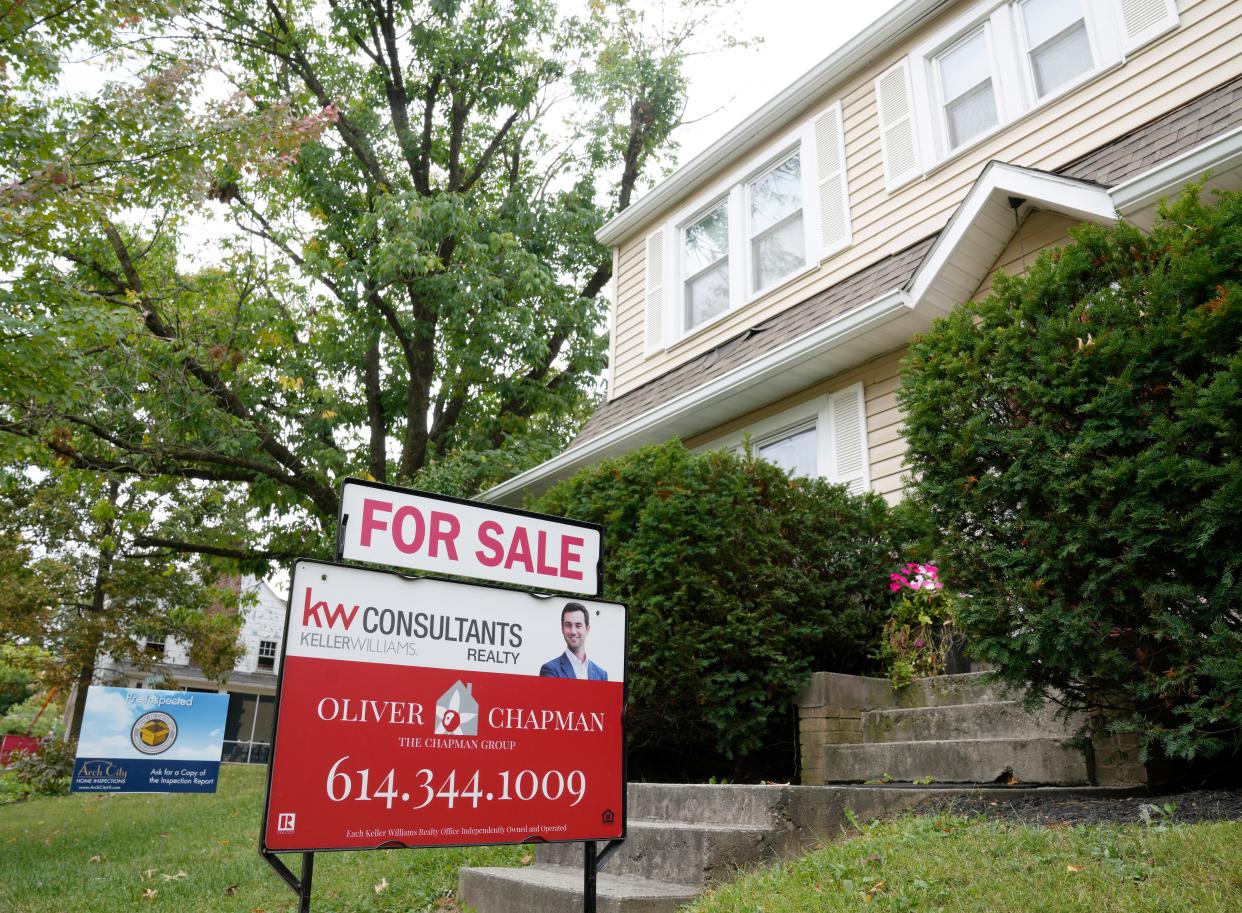Will Ohioans get property tax relief? Plans to tackle tax hikes stall at Statehouse

Ohio lawmakers appear unlikely to act soon on property tax reform, even as homeowners complain they can't afford higher bills that arrived last month.
State legislators unveiled a slew of proposals last year as Ohioans saw their property values soar during the appraisal process. The tax hikes can't be attributed solely to home values: Property taxes are subject to school funding rules and decisions by voters to approve extra money for zoos, libraries and more.
Taken together, Republicans and Democrats decided it's time to look at Ohio's complicated property tax system. But it could take months to find a solution, and it's unclear if taxpayers will get any help in the interim.
"People need this tax relief right now," Rep. Thomas Hall, R-Madison Township, said. "They can't wait two or three more years to get tax relief."
More: No, it's not the county commissioners. Here's why your property taxes went up
Ohio Legislature forms property tax committee
The most significant effort to examine property taxes got underway last month.
As part of the new state budget, House and Senate lawmakers formed a committee to dissect the issue and suggest potential policy fixes. The panel has until the end of the year to chart a path forward.
The committee held its third hearing on Wednesday and has so far heard feedback from county auditors, state tax officials and business groups. Rep. Bill Roemer, R-Richfield, kicked off the first meeting by saying he had no "preconceived notions of recommendations that we should be making."
Still, some ideas have already surfaced. Sen. Bill Blessing, R-Colerain Township, contends property taxes can't truly be fixed until the state tackles housing, including the practice of investors who buy up properties to rent. The progressive thinktank Policy Matters Ohio has pitched what's called a circuit breaker, which would extend state aid to homeowners and renters who use an outsized share of their income on property taxes.
"We do need a comprehensive approach, but we need to move quickly on this," House Minority Leader Allison Russo, D-Upper Arlington, said. "There are many, especially older residents and property owners, in many communities who cannot afford to stay in their homes because of the increase in property taxes. So we need to treat it with that sense of urgency."
Will Ohio homeowners see short-term tax relief?
It takes time for committees to examine any issue, and property tax reform is a messy one. Because of that, some officials have called for more immediate action to alleviate the burden of homeowners.
The House passed House Bill 187 last year to change how home values are calculated. In December, the Senate turned that bill into an expansion of the homestead exemption for low-income people who are elderly or disabled. As a result, the measure would now provide more targeted relief instead of affecting everyone's tax bills.
Blessing said the bill won't solve all of Ohio's problems but believes "in the near term, that is the best solution."
The House must agree to the Senate changes for the bill to become law, which seems unlikely at this stage. House Speaker Jason Stephens, R-Kitts Hill, said a final proposal will come out of the special committee. He also noted that homeowners can challenge their appraisal if they believe it's inaccurate.
Hall worries that inaction in the House stems from political tension between Stephens and Senate President Matt Huffman, R-Lima, who will likely face off for the job of speaker next year. Huffman is term-limited in the Senate and running for a seat in the House.
"It seems like this issue and marijuana, we can't get them together to figure out what we're going to do," Hall said.
What else have Ohio lawmakers proposed?
Beyond House Bill 187, there are other proposals that have yet to gain steam.
House Bill 263 aims to provide tax relief to elderly Ohioans at a certain income threshold. The latest version of the bill would freeze property taxes for residents who are 65 years or older and make no more than $50,000. To qualify, the home must be valued at less than $500,000, and owners need to have lived there for at least two years.
A separate bill would get rid of replacement levies, which extend a levy at its original mill rate while taking updated property values into account. These are different from renewal levies that maintain the same millage and property value, meaning taxes generally don't change.
Proponents say this would eliminate confusion, as homeowners could mix up replacement and renewal levies and end up paying more taxes. But the measure faces opposition from local officials who say replacement levies are a rare, but sometimes necessary tool to help fund libraries, emergency services and more.
"If you look at a short-term fix, you have to figure out if a short-term fix is really short-term or does it have farther-reaching consequences?" Hamilton County Auditor Brigid Kelly, a Democrat, said. "It's good the Legislature is doing their due diligence."
Haley BeMiller is a reporter for the USA TODAY Network Ohio Bureau, which serves the Columbus Dispatch, Cincinnati Enquirer, Akron Beacon Journal and 18 other affiliated news organizations across Ohio.
This article originally appeared on Cincinnati Enquirer: How Ohio Legislature is tackling property tax hikes, high home values

